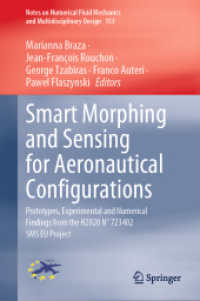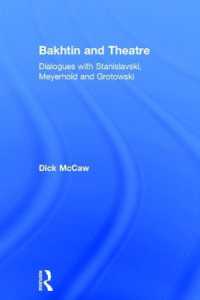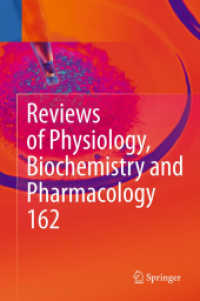- ホーム
- > 洋書
- > 英文書
- > History / World
Full Description
Engaging the writing of the fifteenth-century Confucian theorist and chancellor of the Imperial Academy, Qiu Jun, these essays enlarge our grasp of both Confucianism and the Chinese state, exploring what educated Chinese imagined as best practice in meeting the challenges of administering the realm. Rediscovering statecraft in the Ming period allows us to think about the tradition of applied Confucian duty without the moralism dominating conventional Chinese intellectual history, redirecting that history away from purely philosophical terms. As Qiu reminded Emperor Hongzhi, this 'is not empty talk. I humbly hope that your enlightened majesty will give these ideas your careful attention when you have the leisure to reflect. The people of the realm have no greater wish.' Drawing together a team of leading historians, this volume provides a vivid sense of the day-to-day policy calculations of Ming government, and brings Chinese political thought into the mainstream of comparative political theory.
Contents
Introduction; 1. Statecraft Confucian Timothy Brook; 2. Ideological modules for diagnosing disorder Lianbin Dai; 3. The problem of monarchy Timothy Brook; 4. Waiting: the seniority system R. Kent Guy; 5. Relieving famines Pierre-Étienne Will; 6. Financial administration, market, and merchants Desmond Cheung; 7. The institution of penal prudence Jérôme Bourgon; 8. Feeling, the State, and the problem of filial revenge C. D. Alison Bailey; 9. Employing military force to rule the realm Wicky Wai-kit Tse; 10. Strengthening the army Jun Fang; 11. The limits of all-under-heaven Leo K. Shin; 12. Paramount boundaries Aaron Throness; Conclusion: Neo-Confucian learning as a knowledge practice for sociopolitical engagement Lianbin Dai; Bibliography; Index.








